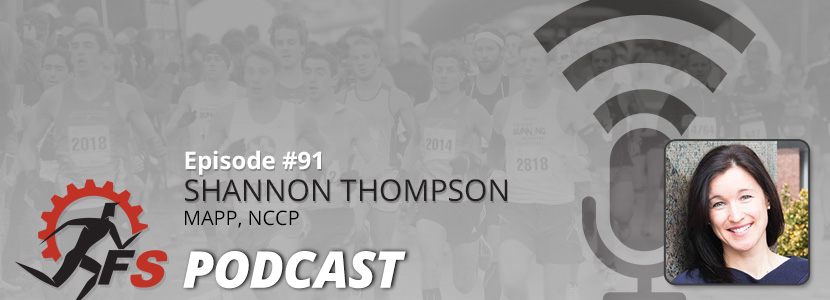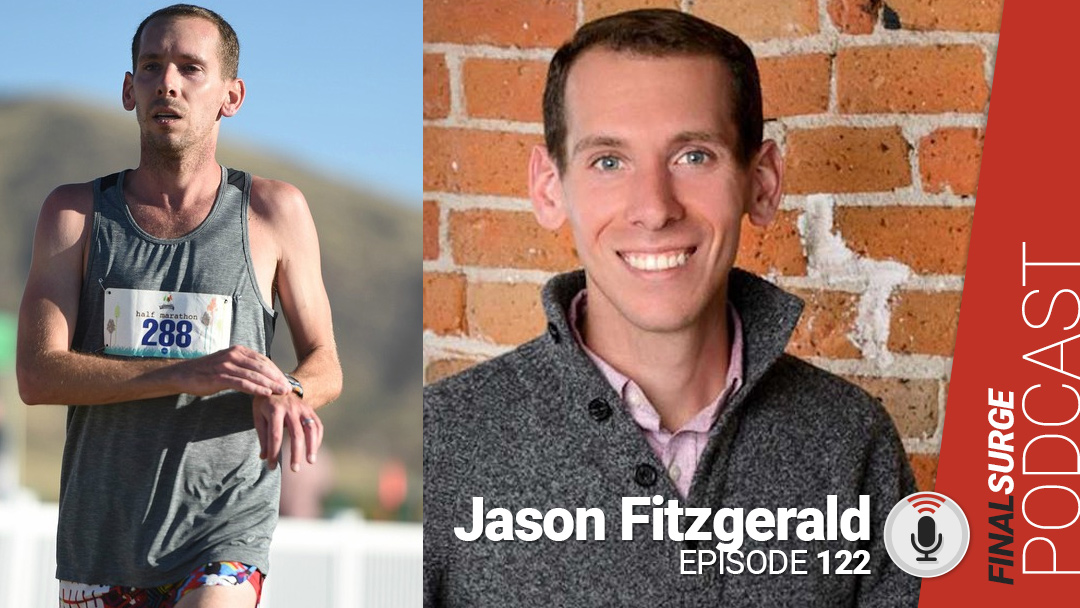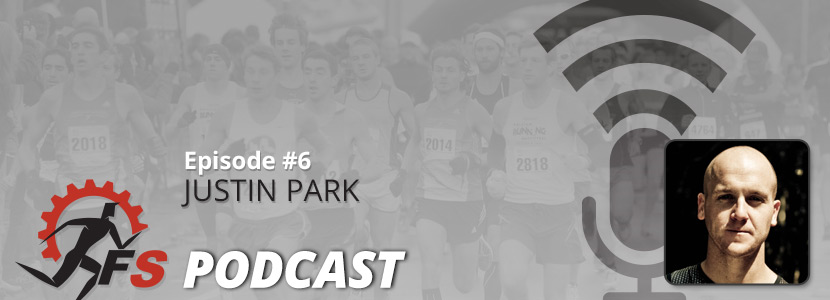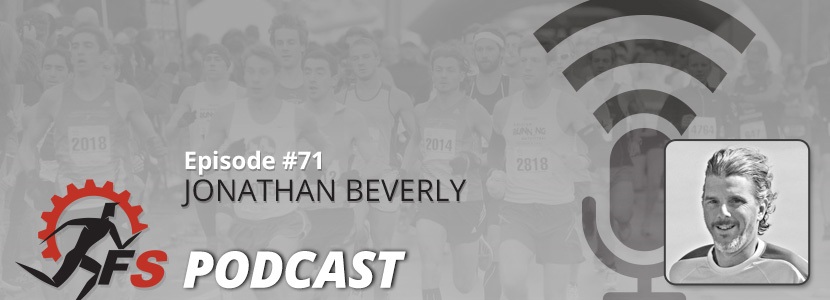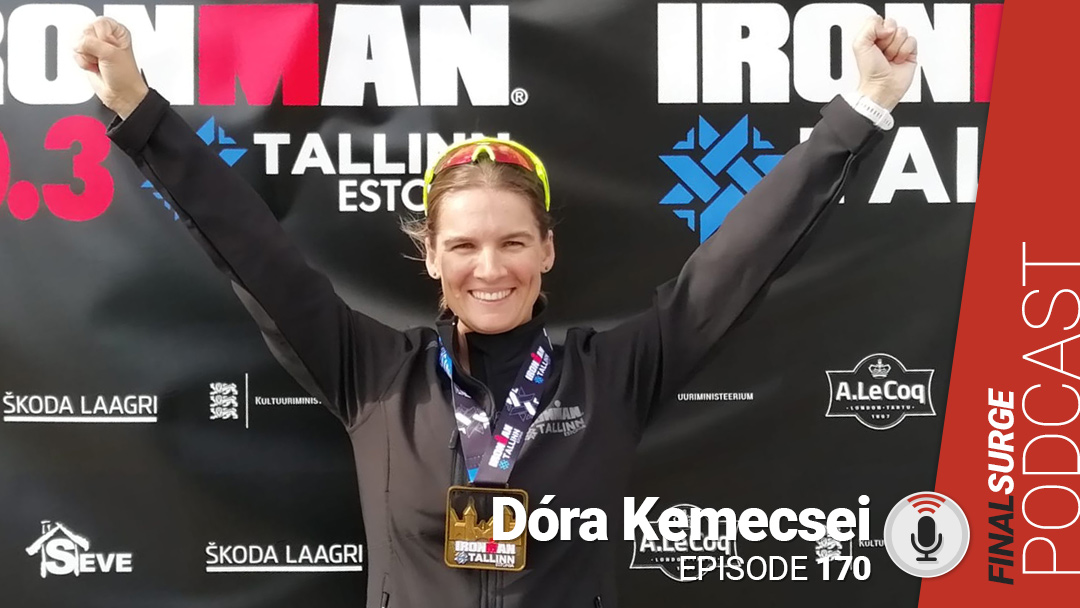In Episode 91 of the Final Surge Podcast we talk to sports psychology and mental performance expert Shannon Thompson of Hypo2 Sport. Shannon works with top professional athletes as well as the NAU National Championship cross country team. She discusses the mental aspect of racing, common traits of successful athletes, and much more.
Are you struggling to get the most out of your racing? In Episode 91 of the Final Surge Podcast we talk with Shannon Thompson, a sports psychology and mental performance expert at Hypo2 Sport in Flagstaff where she works with professional runners and the 2-time defending national cross country championship team from NAU. Shannon is going to tell you how to break down your race and get the most out of it mentally.
Listen to the podcast on iTunes or listen to it on Stitcher or Google Play if you have an Android device.
Stream it right here:
How did you get involved in the psychology field?
- 3-day eventing athlete and coach
- Rode professionally for 12 years and coached for 10
- Could see the role the mind played in performance and training
Your running career?
- Parents were road races and marathoners
- Ran some as a rider
- Got a boyfriend who was an ultrarunner
At the 2-hour marathon attempt, they asked Kipchoge how his training was going to be different. He replied it wasn’t going to be, his mind was going to be. We also know from Dovid Goggins and Navy Seal Training that when your body is done and you do a test of our muscles it shows there is plenty of glycogen left to keep going. So everyone fails before their body really does. What is it that makes some be able to push more than others?
- Central governor theory
- Stress
We have known about the central governor since noakes wrote about it in, so we have had time to study it, What have we learned about if we can change our relationship with the central governor?
- Study with faces flashed positive and negative
- Study where coaches gave them false positive feedback
- Mental performance plan
Let’s take that false positive. If someone is struggling in a race is there anything that can be said to change it or is the athlete’s performance or is it they are just having a bad day?
- Tone matters
- Task oriented
- Don’t freak out
- Energy matters – Stand and speak with purpose
- You can catch those three guys
Let’s talk about race plans and the mental game. Running is different than team sports. In most team sports, baseball, football, or even individual sports like tennis or golf you do your play or movement and then have time to think. Running or triathlon you are going and you keep going for several minutes or hours. So I would think the mental game is different. How do you come up with a mental gameplan for endurance athletes?
- Divide into 1/3 or 1/4
- Each section a word or focus point
- Needs to be worked on in practice
Can have two runners on a college team who workout and live and eat together, but on race day one outperformes the other. How much of that difference could be mental?
- Many things we do not know, we need to get to know the people involved
- We don’t try to compare athletes to each other
If you are sitting down with that runner who is struggling, what type of questions do you ask them to gauge if it is a mental block?
- Explore past races when they were their best
- Find patterns
Can you give us an example of how you break down your races into 1/3s?
- We talk about things we need to do daily, the night before a race, the day of a race, warm ups etc
- First 1/3 is usually about patience
- Second 1/3 is gratitude or love
- Final 1/3 something about them being tough self
I Heard you at the NAU camp a couple of weeks ago. You had a great story about love and how love can have an impact. Can you share that story with our listeners?
- Noticed from interviewing runners their best race stories usually involve love
What are some common traits you see between those who excel and those who struggle?
- Excel – Seek out advice, humble, inclusive, more relaxed
- They love the process
We know you work with college and professional athletes. What do you notice the difference in ages and how things change?
- HS athletes are harder on themselves
We hear a lot about positive thinking. We all know this is important. But let’s look at just this last year’s Boston Marathon. Desi’s self-talk early was I don’t feel good. I am going to try to help Flanagan my Olympic Team member, so her self-talk didn’t seem to be great. Yet she went on to win. So what do you think happened there?
- The desire to help her friend gave her purpose
Is there much research that shows a correlation between stress and physical ailments?
- Not the level of stress that impacts their health, it is the belief about their stress
- If you believe stress is going to have an impact vs a challenge you are looking forward to, it will have a bigger impact
Books recommend?
- Mindset by Carol Dweck
- Flow by Mihaly Csikszentmihaly
- The Rise of Superman by Steven Kotler
- Upside of Stress by Kelly McGonigal
- Psyching for Sports by Terry Orlick
- Mans Search for Meaning by Viktor Frankl
- Radical Acceptance by Tara Brach
- When Things Fall Apart by Pema Chödrön
- Talent Code and Culture Code by Daniel Coyle
One thing we hear a lot about these days is mindfulness can you talk about how you use and teach it?
- Corework for brain
- If the core is strong you stay more stable
- Quiets noise in the brain
- Increase brains ability to pay attention
The Final Surge… 5 questions in under 1 minute
- Favorite endurance/running book? – Momentum
- Current trainers you are wearing? – Nike React
- Favorite race? – Sun Run 10k
- Favorite meal or recovery drink? – Dense and sweet like fudge or icing
- Your favorite workout – Technical downhill

